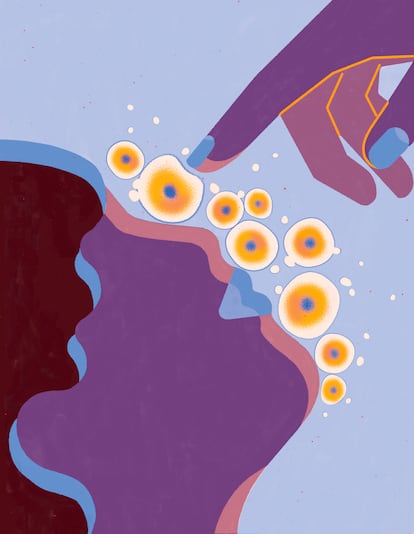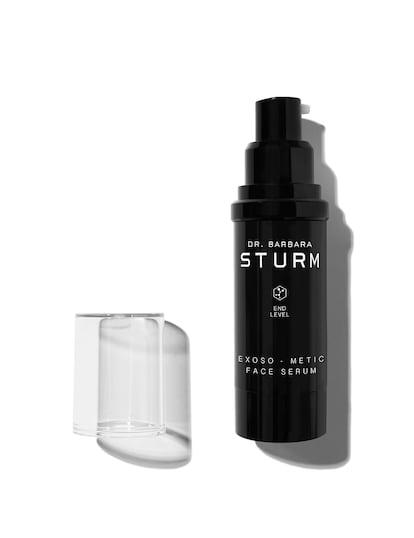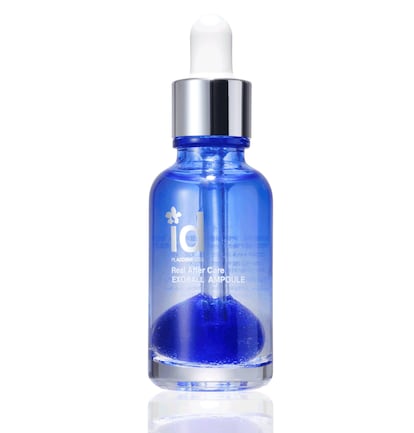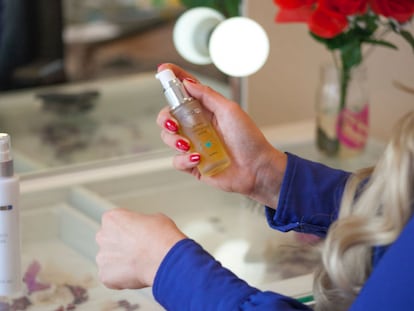Exosomes: A breakthrough in skin regeneration
Many in the scientific and medical community consider these small vesicles the future of regenerative medicine

Our skin is designed to heal itself; that much is true. Still, just as sometimes a nice, strong cup of coffee helps give you a boost, the largest organ in the human body also benefits from some extra help from time to time. This is where exosomes come into play. These small vesicles, which are released by the cells in the process of exocytosis, contain a variety of bioactive molecules, such as proteins, lipids and nucleic acids. “They play an important role in intercellular communication, where they act as messengers that transmit information between cells, and have been found to be involved in a wide range of biological processes such as embryonic development, immune response and cancer progression,” explains Dr Beatriz Beltrán.
Even though exosomes were discovered 15 years ago, until recently they were considered mere byproducts of cellular activity. And, although it is true that in 2018 they proved to be effective to treat atopic dermatitis, it was not until 2020 that other studies showed that they could also repair and regenerate the skin after ablative laser treatments, as well as being equally effective in immunomodulatory therapies. It is now that they have aroused the interest of the scientific and medical community, which sees them as the future of regenerative medicine.

“Being potent dermal regenerators, exosomes balance and regenerate the skin to the fullest, improving its quality and luminosity, while addressing issues such as redness, dullness, photoaging, thin skin, enlarged pores, sensitivity, roughness or dryness,” lists Dr Mar Mira, who also points out that “It has been proven that they exponentially increase the percentage of fibroblasts, collagen and elastin, all of which are more than essential for maintaining healthy, well-cared-for, rejuvenated skin.” These active ingredients are introduced into the skin by microneedling, fractional radiofrequency, fractional microplasma, mesotherapy or photobiodynamic therapy, the latter being the only one that does not use needles or harm the epidermis.

Then there are the autologous exosomes, which are those obtained from our own cells. “The procedure begins with a blood draw – this avoids the risk of allergic reactions, as it is not a foreign product to the body – to obtain PRP [platelet-rich plasma] using the centrifugation technique. Then a device known as Meta Cell Technology is used; this obtains autologous plasma, rich in exosomes and growth factors, which will later be injected into the patient through a process of photothermal regulation with the help of red and blue light,” explains Beltrán.
The added advantage of these messengers is that they are a suitable treatment for any type of skin, as they offer different benefits: “Anti-inflammatory, to treat dermatitis, inflammatory acne, follicles and atopic dermatitis; antioxidant, improving wrinkles and preventing aging; regenerating, improving the skin barrier and generating new blood vessels, and whitening effect,” explains Dr María Rosa García Maroto. The result is a revitalized skin on the face, neck and cleavage, thanks to a reduction of spots, wrinkles and acne scars. In addition, “they are an alternative for those who are reluctant to use needles, since it is possible to open channels in the skin through other procedures, without punctures, to ensure penetration,” highlights Mira.

It must be taken into account that exosomes are not only capable of regenerating facial tissues; they can also be used to treat a person’s intimate area as well as the cells of the hair follicles of the scalp. And while it is true that they cannot promote the appearance of new hair, “they do activate the keratinocytes, fibroblasts, the synthesis of collagen and elastin, but, above all, they increase the regenerative capacity of the hair bulb, which is the set of cells where hair is generated. The result is stronger, healthier hair,” says trichologist Javier Pérez Diez. The vulvovaginal area can also benefit from exosomes. Obstetrician-gynecologyst Zuramis Estrada uses them to help patients with genital disorders such as urogenital atrophy, chronic dermatopathies such as vulvar atopic dermatitis, lichen scleroatrophicus or lichen planus simplex; scars from old episiotomies, perineorrhaphies or other surgeries or trauma, and hyperpigmentation, as an adjuvant in genital lightening treatments.
Until now, this treatment was exclusively used for aesthetic medicine, but “in Korea they managed to isolate exosomes from plants, obtaining spectacular results on the skin through specialized cosmetics,” explains Karla Pires, pharmacist and head of the quality department in the Korean cosmetics distributor Tradegate to Europe, who adds: “These small vesicles have been shown to have beneficial effects, such as cellular regeneration, reduction of inflammation and oxidative stress, and improvement of hydration and elasticity. By including them in the daily beauty routine, the delivery of active ingredients to the skin is ensured, helping to improve both the effectiveness of the beauty product and the appearance and health of the dermis.” It is predicted that this new agent will soon be entering our homes, especially in serums.
Sign up for our weekly newsletter to get more English-language news coverage from EL PAÍS USA Edition









































